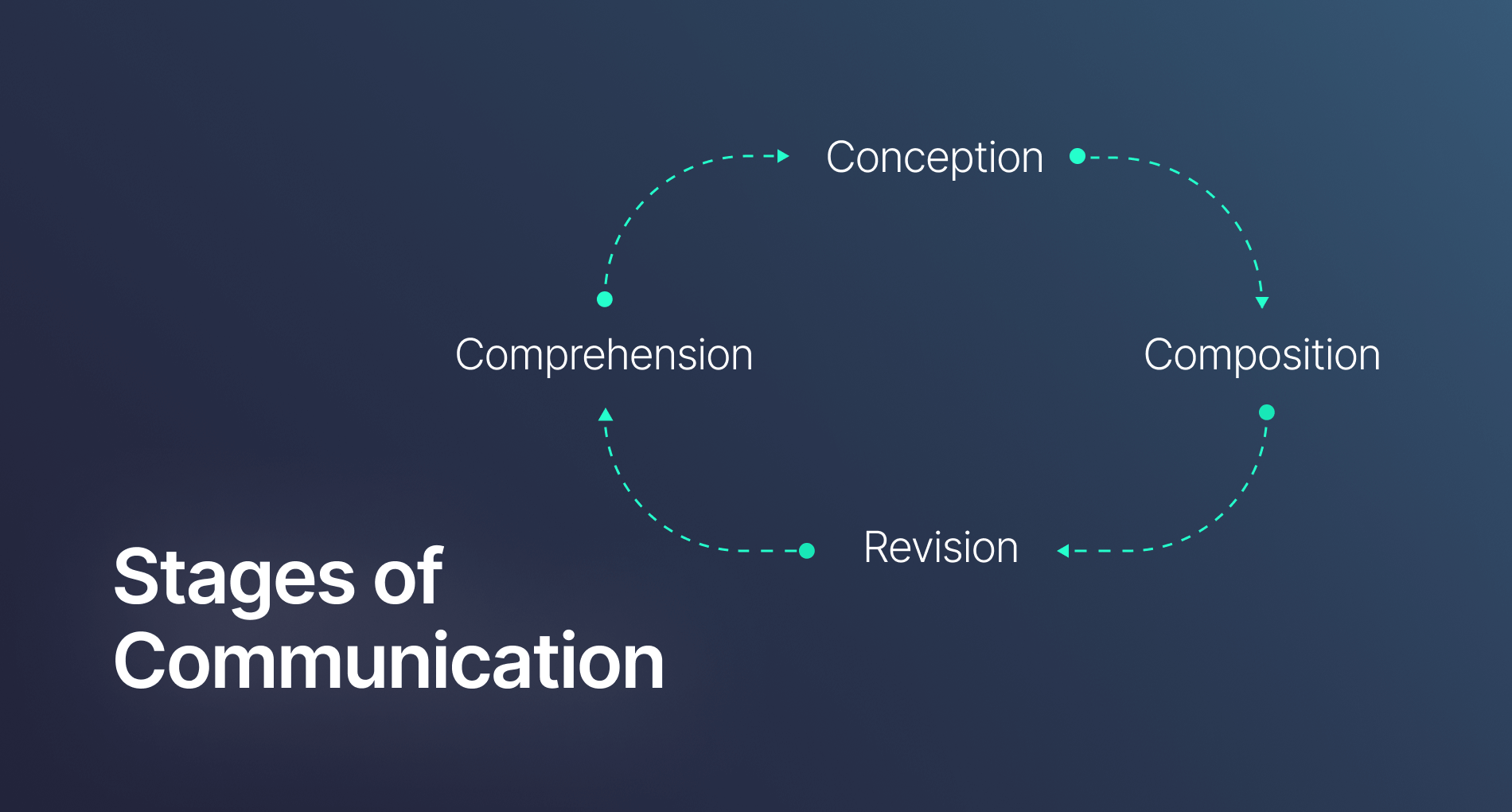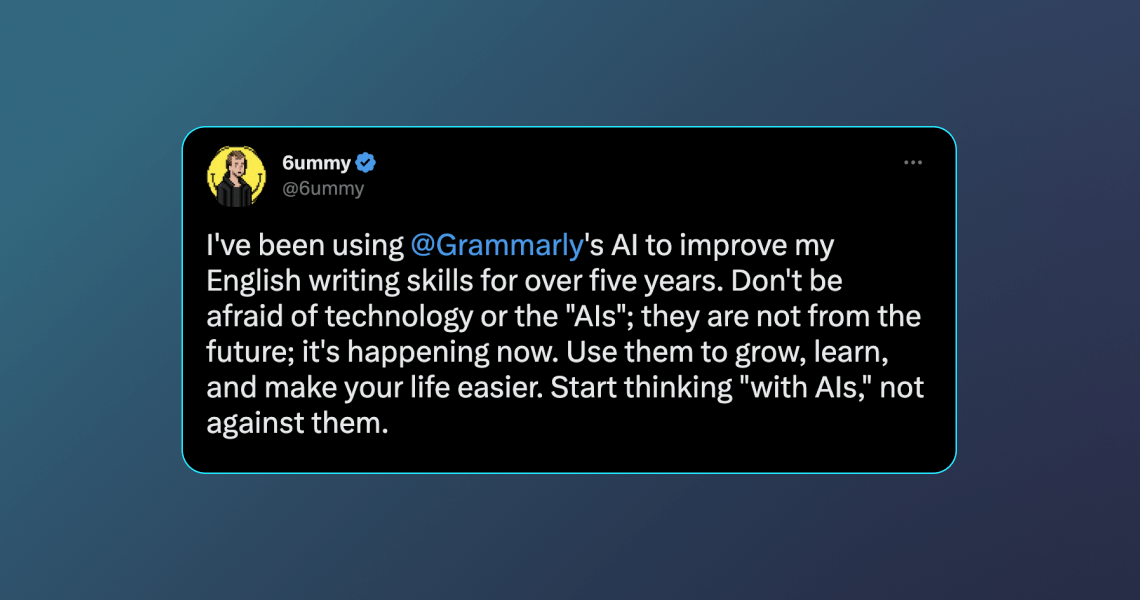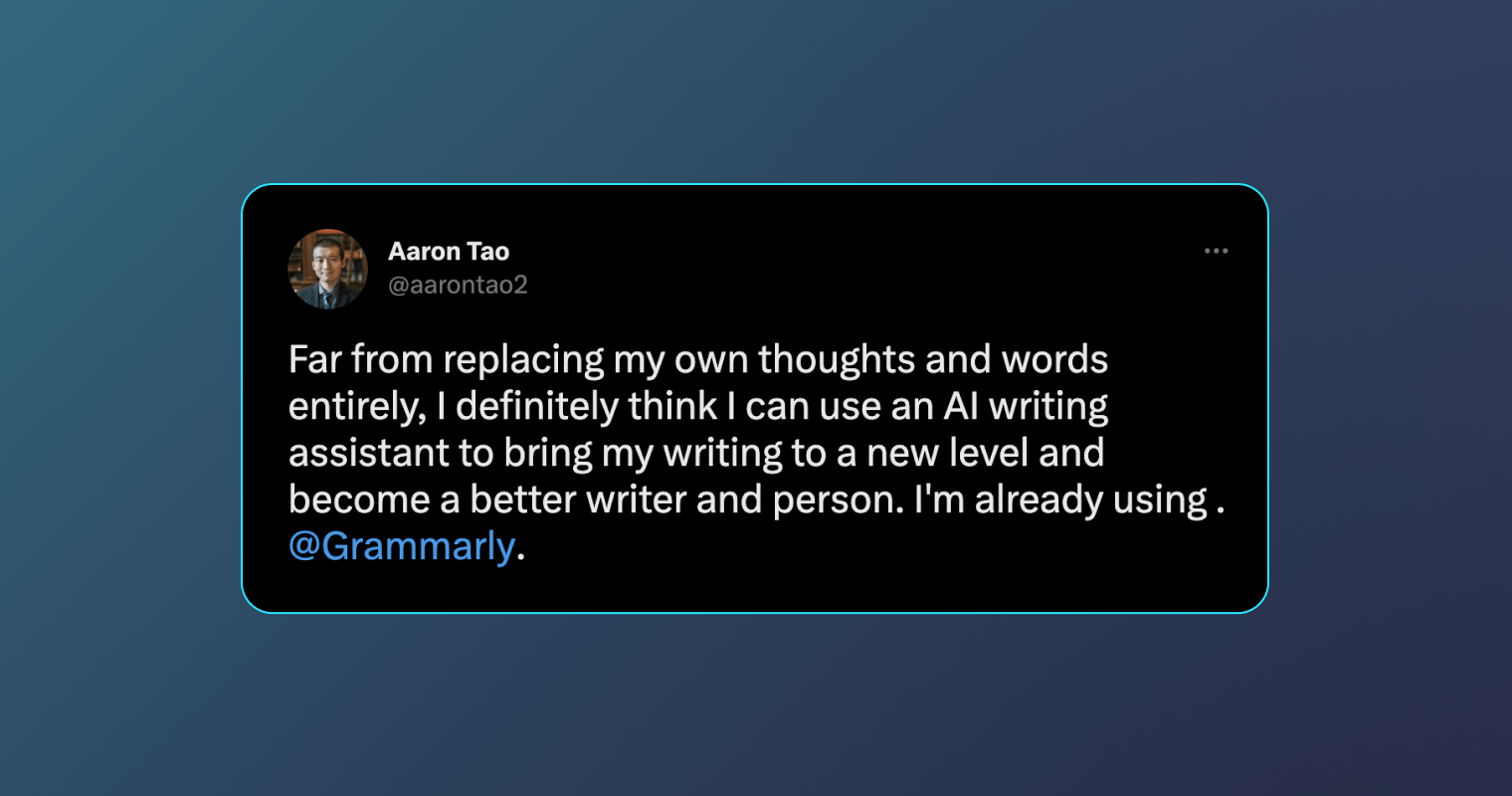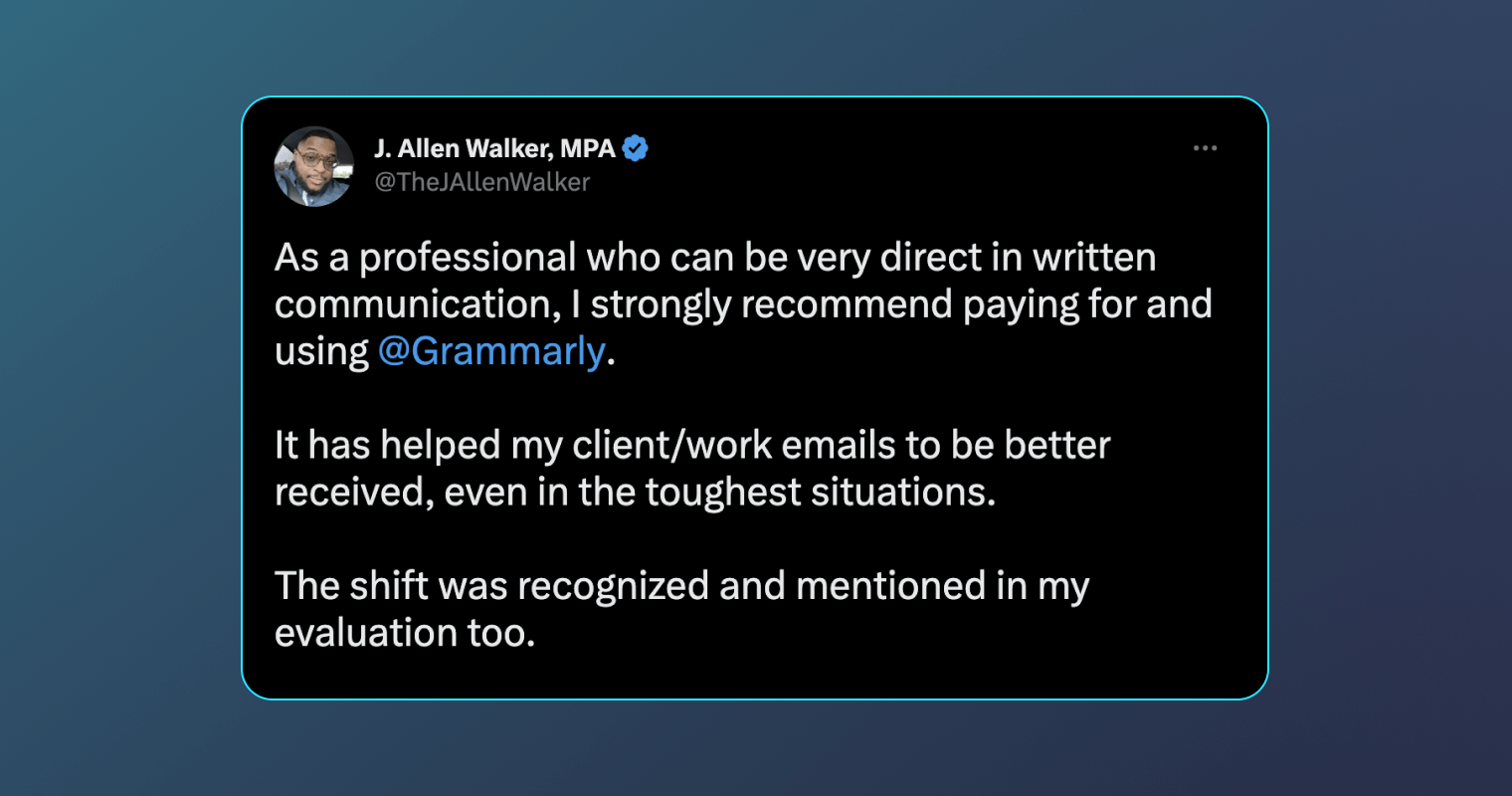
Recent advancements in generative artificial intelligence (AI) are expanding the bounds of human and organizational potential in an area where it matters most: communication. We’re excited about the spotlight this brings to the importance—and challenges—of communicating effectively!
That’s our mission at Grammarly: to improve lives by improving communication. For over a decade, we’ve been harnessing advanced technologies, like natural language processing and machine learning, to build tools that improve people’s writing and help them become stronger communicators along the way.
To date, we’ve been focused on the revision stage of the communication lifecycle. By embracing new technologies like generative AI, we can advance our vision of supporting the entire process—from conception to comprehension. Grammarly is committed to using the most effective technologies available to solve real individual and organizational problems in everyday communications—from overcoming writer’s block to tackling an email backlog in minutes, and more.

Augmented Intelligence underpins responsible AI development
Communication plays an essential—and personal—role in our daily lives. We communicate across a continuously growing number of digital channels, in more contexts, and often without the benefit of verbal or visual cues given our hybrid workplaces. When we communicate effectively, ideas are clearly understood, connections are richer and more productive, and barriers to business and personal success fade away.
The cost and impacts of poor communication are coming into sharper focus. In research we conducted with The Harris Poll last year, we established that poor communication costs US businesses up to $1.2 trillion annually—or $12,506 per employee. This year we will share research that shows this problem is getting worse: Despite workers spending more time on written communication since last year (+18%), leaders report a 12% drop in its effectiveness. Poor communication erodes relationships, stifles business growth and results, and slows feedback loops that devour our time, just to name a few effects.
There’s a new urgency in finding solutions to these costly communication challenges, and technological advancements like generative AI can accelerate the path forward. As we build new solutions for users, we must do so responsibly.
Grammarly’s product strategy follows a core principle: We want to augment human potential, not reduce personal autonomy. We believe technology should be built to solve real user problems, enhance understanding and productivity, and empower human connection and belonging. AI is successful when it augments humans—their intelligence, strengths, and desire to be understood. That’s why we fundamentally think of our responsible approach to building with AI as augmented intelligence—anchoring on the idea that AI uses human, not “artificial,” knowledge to enhance our capabilities and help us grow.



The concept of augmented intelligence guides Grammarly’s product-building philosophy. It is why our partners and customers—including tens of millions of users and over 50,000 professional teams—trust us. Since our founding in 2009, we’ve expanded the reach of our product to support writing across more than 500,000 web and desktop applications, deepened our understanding of user and organizational context to deliver even more meaningful guidance, and grown Grammarly Business to empower entire teams to communicate more effectively. Along the way, we’ve invested in leading, enterprise-grade security and privacy safeguards that prioritize user trust, which starts with our user-first business model (we don’t—and will not—sell user data).
Why does approaching technology through the lens of augmentation and personal autonomy matter? Because it is our shared responsibility to ensure technology is improving society and helping us reach our potential. Technology has no reason to exist and develop in the absence of that goal to help us. We build it, and it is our responsibility to determine how it can benefit all of us and enhance—not detract from—what makes humans unique.
This is an exciting time for people to uncover their communication superpowers—particularly for our customers and partners. Grammarly uses all types of technologies to help people overcome their communication pain points—and we’re encouraged by the impact generative AI will have when applied in such a way that it augments our users’ communications, all while respecting their autonomy and authenticity.






